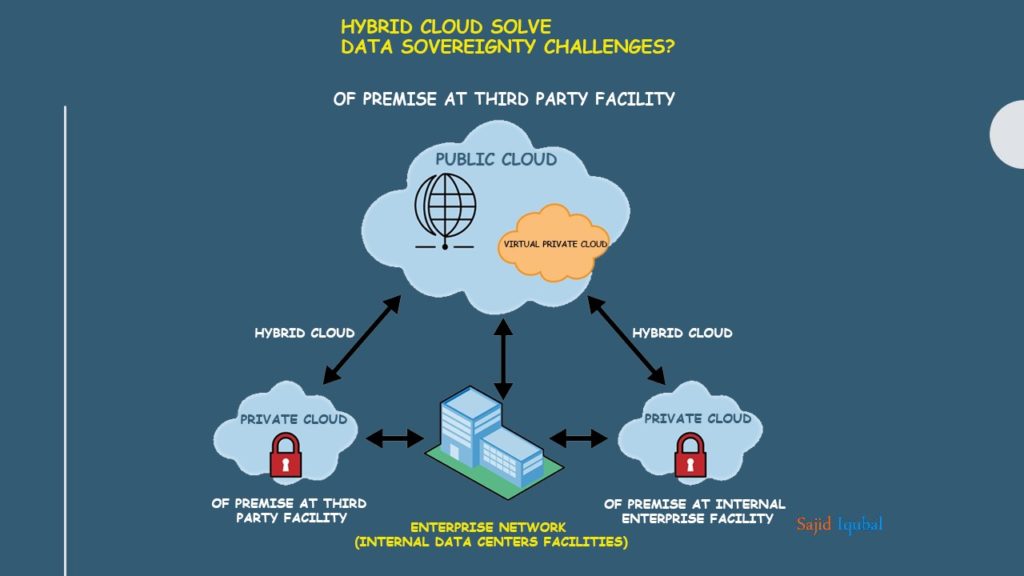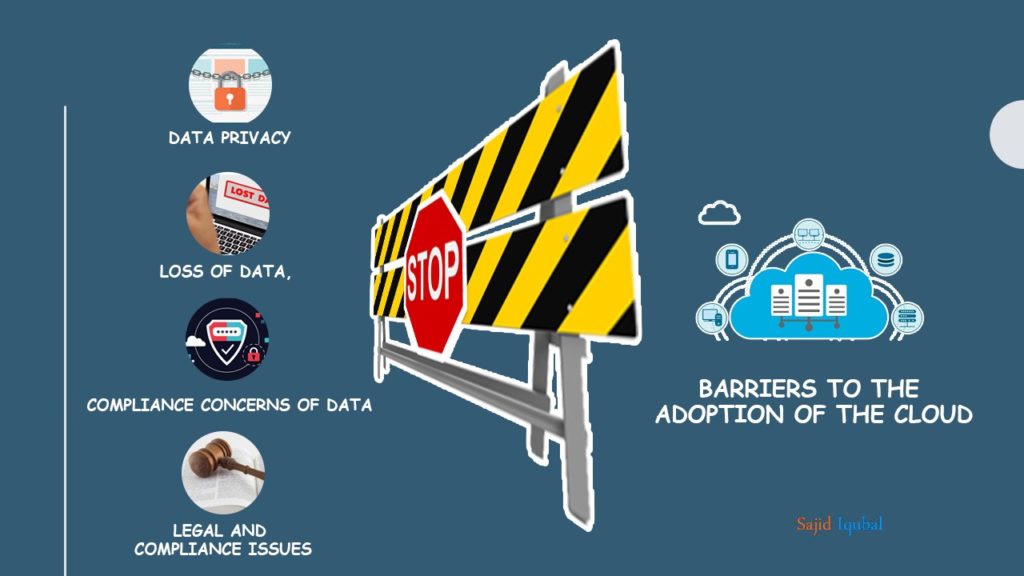Data sovereignty is the concept that any piece of data is subjected to the laws of the country within whose borders it exists at any time. This concept is proving to be a very challenging one for businesses as they are moving their data to the cloud. There is a high fine charged by most countries if any business or company breaks the country’s data sovereignty rules and regulations. Data sovereignty is the cause of trouble and problems for various firms and organizations which deal with business internationally and have moved on to the cloud.
To solve such problems of such organizations the hybrid cloud and its approach exists. Such organizations that have their own environments on their premises get over such challenges without ever having to give up a public cloud’s benefits and features. The hybrid cloud approach lets various companies choose and decide the data that they do wish to hold off the cloud premises and the data they need on the cloud.
Cloud web hosting is the best option for your website if it has used up the resources from its previous shared hosting provider. This means that if the popularity of your website is immense and a strain is being put on the virtual resources, you need to go for cloud web hosting. You may also go for dedicated hosting but it is very expensive. Cloud web hosting on the other hand will provide you with all the advantages of dedicated hosting and none of the shortcomings.
With cloud web hosting you can easily visualize a cloud group. Scalability is one of the most basic advantages of cloud web hosting. With cloud web hosting you get to decide when and if you need any additional clouds for your website at a given time. If at any point in time you see that your website has really bad traffic you can easily have more clouds gather around it to ensure that the users are able to use your services with ease. And when the traffic is low, you can just let those clouds leave when you no longer have a need for them.
Cloud web hosting has a number of advantages of its own but when it comes to data sovereignty there are a lot of concerns revolving around the cloud.
The most important thing to remember that we are not immune to the digital world and there is not a single part of our existence and being that is immune to it as well. In the last few years such concerns over how the digital realm must be properly governed, the data it consists of and how much can this access to data affect the individual’s rights and independence in the public realm, have risen and talked about a lot. This digital realm also gives us a huge opportunity to have opportunities that are infinite and can change the face of the global economy and our society too.
However, in order to be able to successfully achieve this amazing idea, we need there to be standard rules and regulations that regulate and work around data and ensure that such regulations work on a national as well as an international level too.
A number of various firms are moving towards and opting for the public cloud so that they can gain the speed it provides with which developers can make and introduce a number of applications in their firms and companies. But there are a few cases where certain types of data and apps cannot be run on the public cloud because of data sovereignty regulations and its policies of compliance in different parts of the world.
How does the hybrid cloud solve data sovereignty challenges?

The hybrid cloud approach lets various organizations have a status quo where their customers are concerned even when they successfully follow all the data regulation policies of a certain country. The hybrid cloud approach lets various companies have their own environments on their premises get over such challenges without ever having to give up a public cloud’s benefits and features. The hybrid cloud approach lets various companies choose and decide the data that they do wish to hold off the cloud premises and the data they need on the cloud.
In present times we see more and more firms move towards a hybrid cloud that is fully compatible with the public cloud provider that they are on. This means that they get benefits and amazing features like a secure private cloud on their premises and also all the speed and data storage benefits and other features of the public cloud. This approach ensures that data sovereignty is taken fully care of; they don’t break any data regulation rules and norms and even lets their own customers launch an API compatible hybrid cloud with a public cloud service that they would prefer. This makes everything easy and solves all the problems and concerns of data sovereignty in a cloud.
Barriers to the adoption of the cloud

There are a number of security challenges that are faced by the cloud including problems like data privacy, loss of data, compliance concerns of data, and also concerns about the exposure of some credentials accidentally. Data security, legal and compliance issues, and leakage remain the top barriers to the cloud affecting the number of firms and organizations adopting the cloud.
Data Breach and its cost
The cost of a data breach and the five factors that contribute to it are compliance failure, system complexities, third-party involvement, operational technology, and extensive cloud migration.
Technology lag or regulator lag
There is a growing need for nationalism which means that the ability to reach various such countries where the data is being stored on the cloud and allowing the persistence that happens to happen and be there at a regional level must need to be becoming more distinct and demonstrable to its regulators and policymakers. It remains true that all organizations certainly wish to be in compliance with and follow the country’s data sovereignty laws and regulations but to prove it from a technical point of view is not an easy task. When it is allowed that any sensitive data can move through and travel via the cloud applications, it could be that it becomes nothing but a deviation from the expected regulations and following of those rules and norms fully.
The best approach to establishing a robust, strong, and effective Data Sovereignty framework:
In present times we see each and every organization on a cloud move towards and properly develop an effective framework for cloud risk management and data sovereignty compliance. It is an important step needed to balance the rewards that can be potentially procured against losses that are uncertain and unanticipated. The main challenges occur and develop however from a comprehension of various risks done inadequately. The problem also arises when the risk mitigation and data sovereignty compliance is considered and looked at imperfectly. A hybrid cloud approach remains the best way for firms, companies, businesses to establish a good, effective, robust, and innovative framework for data sovereignty and its full compliance.